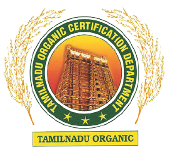We are being called to view agriculture not as a ‘business’ or a transaction with nature, but a participatory ‘joyous sacrifice of interchange’, a way of mutual action and growth.
As consciousness advances, Sri Aurobindo (1939) envisioned that the desire for food would,
“progress from the type of a mutually devouring hunger to the type of a mutual giving, of an increasingly joyous sacrifice of interchange…Thus the law of Hunger must give place progressively to the law of Love, the law of Division to the law of Unity, the law of Death to the law of Immortality” (pp. 207-208).
We are being called to view agriculture not as a ‘business’ or a transaction with nature, but a participatory ‘joyous sacrifice of interchange’, a way of mutual action and growth. Can agriculture be more than growing food? Can it be a path toward human unity and the evolution of consciousness?
Over the last five decades, Auroville has undertaken remarkable ecological restoration work—today, much of the township is now under a forest canopy. Alongside this, a network of community farms has taken root, supplying fruits, vegetables, grains, milk, and eggs to the kitchens of Auroville. Yet, like farms everywhere, Auroville’s food system is not without challenges. Farmers face the same global pressures: commodification of food, labour shortages, climate shocks, wildlife pressures, and financial strain. At the same time, Auroville’s farms hold the potential to be something more—collective experiments in the advancement of human consciousness. But we need a new language to address the often overlooked potential of agriculture, and of Auroville farms in particular. Looking at agriculture through the lens of Sri Aurobindo and Mother’s Integral Yoga allows us to discover its multiple dimensions, which could all be integrated into what we can call- Integral Agriculture.
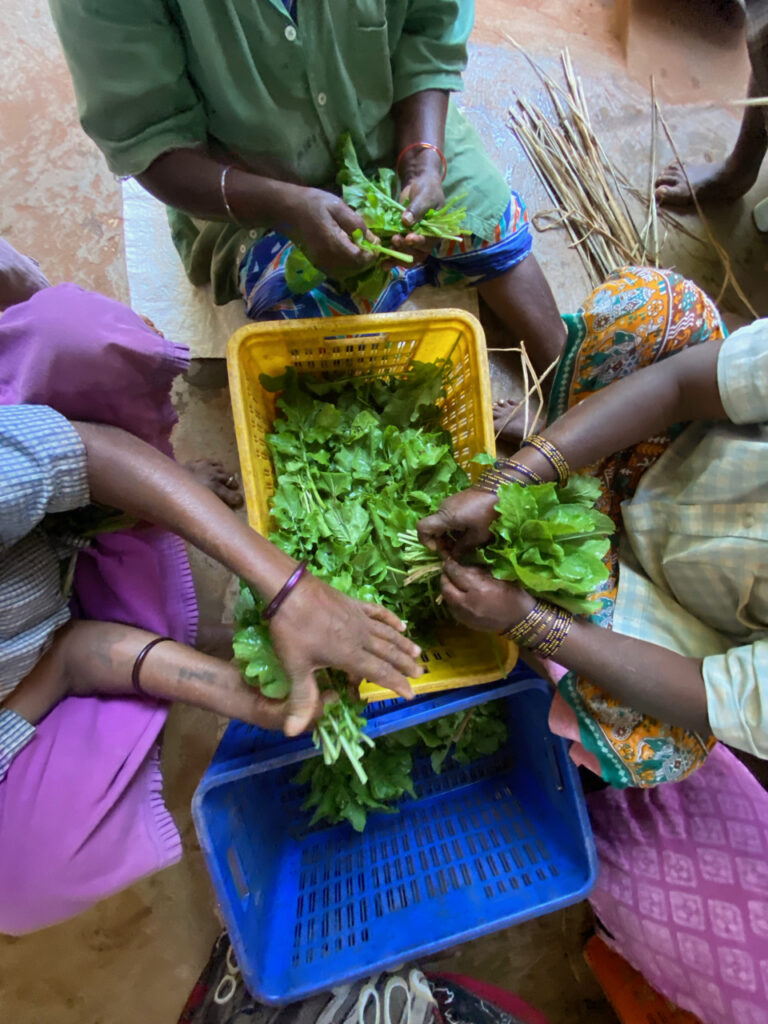
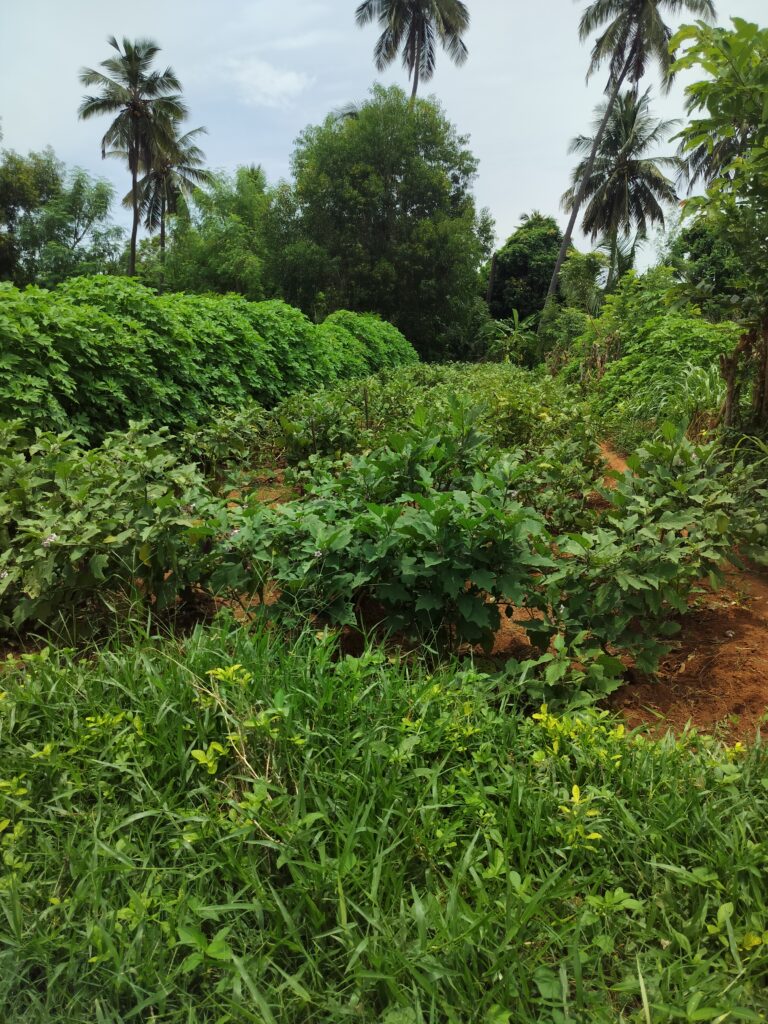
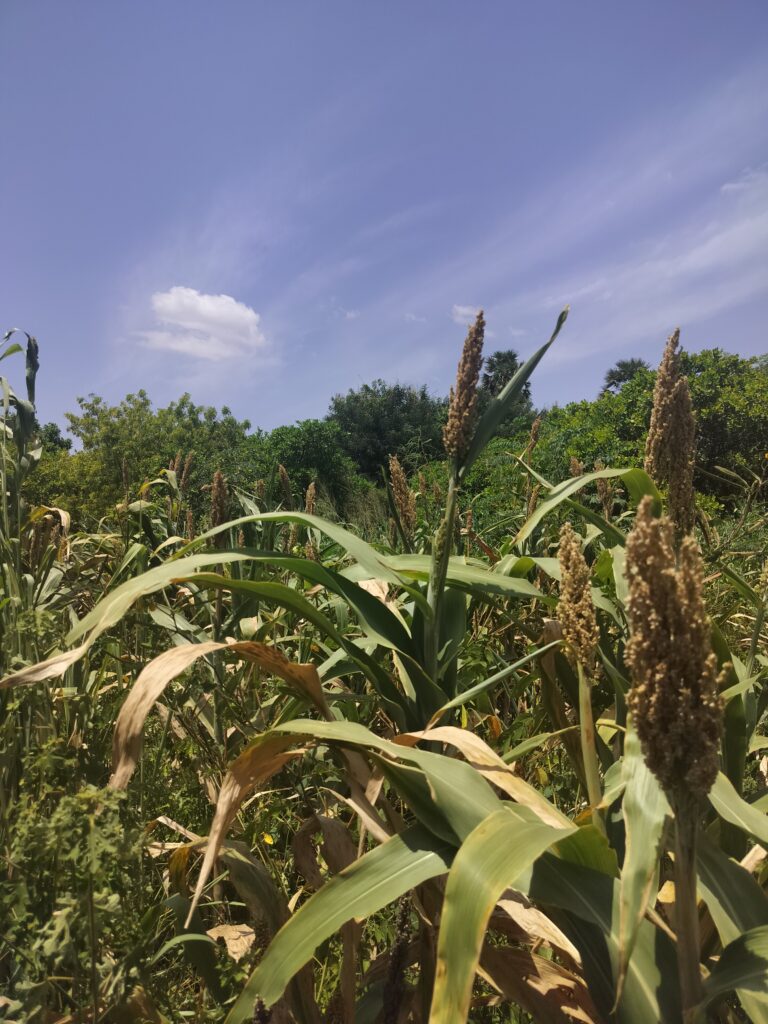
Farming is becoming increasingly complex due to the changing climate, the presence of wildlife on farms, and sudden attacks by insects and microbes on crops, among other factors. Being a farmer means bearing these challenges and risks while still trying to put food on the table. At the same time, agriculture itself has a massive impact on the land, and especially modern agriculture has caused large-scale biodiversity loss.
Through agroecology and ethical stewardship, farms in Auroville are attempting to restore the balance between wilderness and cultivation and turn agriculture from colonisation of land into a conscious partnership with it. Auroville farms have an interesting history of regenerating land in different ways, and the diversity of soil profiles, diets and farming techniques in this community presents an incredible opportunity to experiment with different approaches toward this goal.
Every farm is as much a self-contained community as it is a part of the wider socioeconomic and political network. A healthy farm cannot just be healthy ecologically but needs to address issues of financial sustainability, people’s welfare and the sovereignty of food production. The Mother and Sri Aurobindo envisioned self-sufficiency in food as essential for a gnostic community. In Auroville, this is both practical and symbolic: a way of lessening dependence on fragile global food systems and cultivating responsibility at a local level.
An assessment of Auroville’s farms (2024) showed that the shortfall in community-grown food is not only about production—it is also about distribution and consumption patterns. Interestingly, 70% of the farmers themselves come from outside Auroville, reflecting the community’s openness and the challenge of embedding farming into its core culture. Community farming in Auroville is thus a rare, living laboratory: small enough to manage, yet complex enough to mirror the dilemmas of global food systems.
Technology, particularly Artificial Intelligence, is making inroads into all aspects of our lives, and agriculture is no exception. Today we have automated irrigation systems managed remotely at the touch of a phone, drones sowing seeds and spraying fertilisers and pesticides, drone bees facilitating pollination, satellite imagery being used to predict soil moisture, plant health and so on, multi-purpose tractors and combines that can manage a large monoculture farm almost independently. There are many who believe that ‘smart farming’ with technology will replace human farmers. But this will come at the cost of diversity and traditional human knowledge and experience, which has developed and sustained agriculture for at least over ten millennia. We need solutions that do not seek to replace farmers, but become their allies and partners in supporting a new future of agriculture, which is technology-driven and yet remains at a human scale.
With its interest in the evolution of consciousness, Auroville is poised to become a pioneer in discovering frameworks of conscious technology, particularly in fields like agriculture.
Agriculture teaches us the need for expanding our notion of community from only humanity to the non-human beings on this planet. It requires us to re-establish our lost connection with nature and locate ourselves as participants in the larger flow of energy. As Sri Aurobindo (2005) notes, “All Matter according to the Upanishads is food, and this is the formula of the material world that ‘the eater eating is himself eaten’ (p. 204). Thus, food must be considered not only as an object of sustenance of the material life but also as an object of contemplation for a spiritual life. It is a reminder of our separation, our desire to complete ourselves through each morsel. Auroville’s commitment to realising human unity, a unity not only within the human community, but unity of human with the Divine, adds a spiritual dimension to the agriculture practised here.
Finally, we are in a time in the world when everything has stopped making sense. The solutions of the physical, vital, mental, and even spiritual are hard to grasp and are not sufficient in alleviating our inner disconnect, loss of meaning, relationships and purpose. The externalities of our current world and the breakneck speed of our lives and communication keep us away from any opportunity to recognise our predicament and articulate a response to it.
Agriculture allows us to slow down, pause and synchronise ourselves with the rhythms of nature. It gives us a new language to communicate not only with humans and non-humans, but ourselves—to begin to come into contact with our psychic being. This is the deepest dimension of agriculture and the final objective of Integral Education, which Mother and Sri Aurobindo talked about. Auroville agriculture cannot only be about the tonnage of food and organic certifications. It is an opportunity to offer a completely new environment for learning, in a time when education is restricted to classrooms and buildings, and now increasingly to computer screens.
Auroville farms have done remarkable work in this direction by welcoming volunteers and researchers from around the world over many decades and offering them a space for learning, being, and becoming more than just consumers of our conventional systems of production.
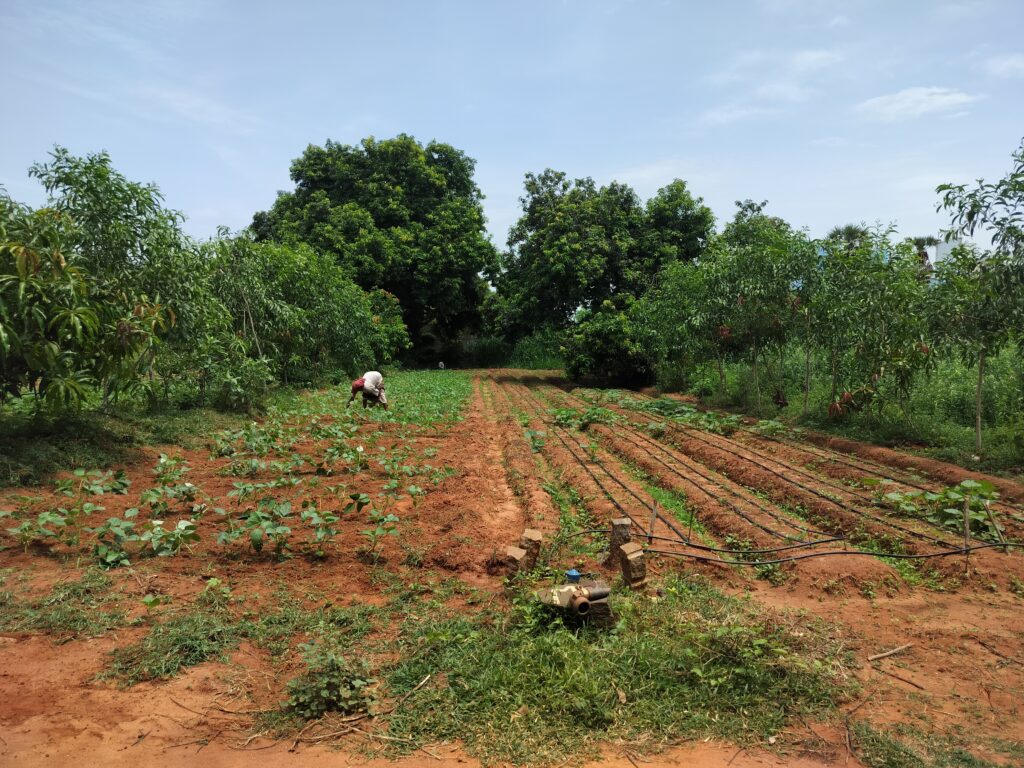
Auroville currently has 26 farms spread over 400 acres. About 70% of this land is under cultivation of grains, oilseeds, fruits, vegetables, milk and eggs. As mentioned above, the challenges here are similar to those of other farms around the world- lack of investment in key infrastructure areas, lack of labour and facilities for young farmers, lack of community-based solutions for distribution and processing, lack of farmer training, professional development, and community-wide commitment to food resilience. Despite these limitations, Auroville farms are a rich example of community farming, agroecology, education and imagining farming as a collective experiment in resilience, responsibility, and consciousness.
The current challenges are also an opportunity for us to strengthen community engagement around food and expand the circle of agriculture beyond farms into policy and education. We need a radical shift in our mindset and lifestyle- a complete transformation from the Law of Hunger to the Law of Love, a transformation of food from commodity to communion. Auroville farming is both a study and an experiment in discovering how this can be realised. We welcome farmers, researchers, and volunteers to join us in discovering and shaping an integral philosophy and practice of agriculture.
Join our newsletter for exclusive updates!
AuroOrchard is certified organic by the Tamil Nadu Organic Certification (ORG/SC/1906/001683) Department accredited by APEDA (Agricultural and Processed Food Products Exports Development Authority), New Delhi, Ministry of Commerce and Industry, Government of India.


